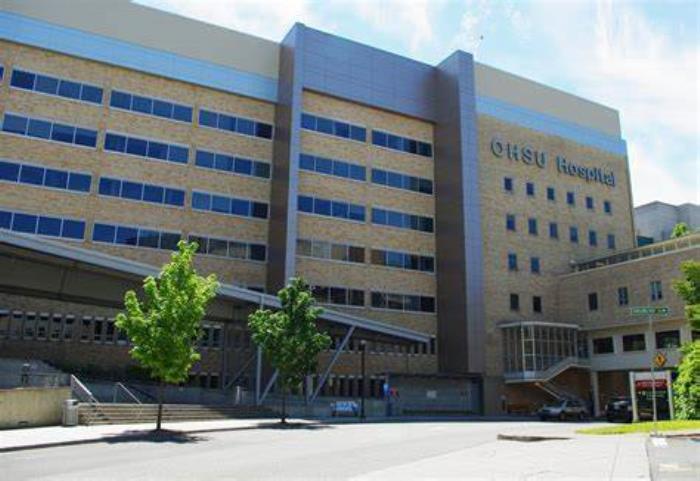Recovery from heart bypass surgery is a critical phase that requires careful attention and management to ensure the best possible outcomes. Understanding the recovery process can help patients and their families navigate this period more effectively. Each phase of recovery involves specific expectations and challenges that are important to address for a smoother transition back to daily life.
Medical disclaimer: This content is for general awareness and does not replace a doctor’s consultation. For diagnosis or treatment decisions, consult a qualified specialist.
What to Expect Immediately After Surgery
Immediately after heart bypass surgery, patients are typically taken to the intensive care unit (ICU) for close monitoring. In this initial phase, medical staff will observe vital signs, ensure the heart and lungs are functioning properly, and manage any pain or discomfort through medication. Patients may be connected to various monitors and devices, which can be overwhelming but are essential for ensuring safety during recovery.
Hospital Stay: Duration and Monitoring
The length of the hospital stay after heart bypass surgery usually ranges from four to seven days, depending on the patient’s overall health and the complexity of the procedure. During this time, healthcare providers will conduct routine assessments and monitor for any complications. Patients will gradually be encouraged to engage in light activities, such as sitting up and walking, to promote circulation and prevent complications, all while under the watchful eye of medical staff.

Initial Recovery Phase: Days 1 to 3
The first three days post-surgery are crucial as patients begin to regain strength and start the healing process. During this period, patients will typically experience pain, swelling, and fatigue, which are normal responses to surgery. Healthcare teams will focus on managing pain effectively, encouraging deep breathing exercises, and monitoring for any signs of infection or complications. Patients may also begin to learn about the recovery process, including activity restrictions and the importance of follow-up care.
Transitioning Home: Preparing for Discharge
Preparing for discharge from the hospital involves several important steps to ensure a safe transition to home. Before leaving, healthcare providers will offer guidance on managing medications, pain relief, and lifestyle adjustments. Patients will also receive instructions on what symptoms to watch for and when to seek medical attention. Arranging for assistance at home, whether from family members or home health care professionals, is vital to support patients as they continue their recovery journey.
First Week at Home: Managing Pain and Discomfort
The first week at home is often marked by a combination of physical and emotional challenges as patients adjust to their recovery environment. Managing pain effectively is crucial, and patients should adhere to prescribed medication schedules while also engaging in light activities as recommended. Patients may experience fluctuations in energy levels and may need to prioritize rest while gradually incorporating gentle movement, which aids in recovery and promotes healing.
Follow-Up Appointments: Importance and Frequency
Follow-up appointments are an essential aspect of the recovery process following heart bypass surgery. These visits allow healthcare providers to monitor healing progress, adjust medications, and address any concerns that may arise. Typically scheduled for a few weeks post-discharge, these appointments are critical for ensuring that patients are on the right track to full recovery and for implementing lifestyle changes that can enhance heart health in the long term. Regular follow-ups also provide an opportunity for patients to discuss their experiences and receive guidance on the next steps in their recovery journey.

Resuming Daily Activities: What’s Safe and What’s Not
After heart bypass surgery, resuming daily activities is a crucial aspect of recovery. Initially, it's essential to prioritize rest and allow your body to heal. Simple tasks like walking around your home or doing light chores can be safe as you regain strength. However, it's important to avoid heavy lifting, strenuous exercise, or high-impact activities for a certain period. Always consult your healthcare provider for personalized recommendations on when and how to gradually reintroduce more demanding tasks into your routine.
Returning to Work: Timeline and Considerations
The timeline for returning to work after heart bypass surgery varies based on your job type and individual recovery progress. Generally, patients can expect to return to desk jobs within four to six weeks. However, those with physically demanding jobs may need a longer recovery period, possibly up to three months. It's essential to discuss your specific situation with your employer and healthcare provider to ensure a safe and smooth transition back to work.
Gradual Increase in Physical Activity: Guidelines
As you recover, gradually increasing your physical activity is vital for rebuilding strength and stamina. Start with short walks, aiming for 10 to 15 minutes per session, and progressively extend the duration as tolerated. Incorporate light stretching and gentle exercises to promote flexibility and circulation. Consult with your healthcare team or a cardiac rehabilitation specialist for tailored exercise guidelines that suit your recovery needs.
Importance of Cardiac Rehabilitation Post-Surgery
Cardiac rehabilitation plays a crucial role in recovery after bypass surgery. This structured program focuses on improving cardiovascular health through supervised exercise, education on heart-healthy living, and support for emotional well-being. Participating in cardiac rehab can help patients regain strength, improve overall heart function, and significantly reduce the risk of future cardiac events.
Emotional and Psychological Recovery: Coping Strategies
Emotional recovery is an often-overlooked aspect of the healing process after heart bypass surgery. Many patients experience feelings of anxiety or depression during recovery. To cope, consider engaging in relaxation techniques such as deep breathing, meditation, or gentle yoga. Additionally, seeking support from family, friends, or professional counselors can provide valuable encouragement and help you navigate the emotional challenges of recovery.

Nutrition and Diet Changes for Heart Health
Adopting a heart-healthy diet is essential for long-term recovery after bypass surgery. Focus on incorporating a variety of fruits, vegetables, whole grains, lean proteins, and healthy fats into your meals. Reducing salt, sugar, and saturated fats can also help manage weight and lower cholesterol levels. Consulting a registered dietitian can provide personalized dietary recommendations tailored to your specific health needs.
Managing Medications: What You Need to Know
Proper medication management is critical after heart bypass surgery. Patients may be prescribed anticoagulants, beta-blockers, or other medications to support heart health. It’s essential to adhere to your prescribed medication regimen and communicate any side effects or concerns with your healthcare provider. Regular follow-ups will help ensure that your medications are effectively managing your condition.
Signs of Complications: When to Seek Medical Help
Awareness of potential complications is vital during recovery. Patients should watch for signs such as chest pain, excessive swelling, shortness of breath, or unusual fatigue. If any of these symptoms occur, it is important to seek medical help immediately. Prompt action can prevent serious issues and contribute to a smoother recovery process.
Timeline for Full Recovery: What Patients Should Expect
Full recovery from heart bypass surgery typically takes several months, with many patients feeling significantly better within six to eight weeks. However, complete healing and the return to normal activities can take up to six months or longer. Individual recovery timelines may vary, so it is essential to remain patient and follow your healthcare provider’s guidance throughout the process.
Long-Term Lifestyle Changes for Heart Health
Sustaining heart health after bypass surgery involves making long-term lifestyle changes. Prioritizing regular exercise, maintaining a balanced diet, managing stress, and avoiding tobacco products can all contribute to a healthier heart. Engaging in regular check-ups with your healthcare provider will help monitor your heart health and prevent future complications.
Understanding the Impact of Recovery on Quality of Life
Recovery from heart bypass surgery can significantly affect a patient’s quality of life. Many individuals report improvements in energy levels and overall well-being post-surgery. However, it’s important to acknowledge that the recovery process may involve challenges. Embracing a proactive approach to health can help individuals navigate these challenges and enhance their quality of life.
Patient Stories: Insights from Those Who Have Recovered
Hearing from patients who have successfully recovered from heart bypass surgery can provide valuable insights and inspiration. Many share stories of resilience, emphasizing the importance of support systems, lifestyle changes, and a positive outlook. These experiences can help new patients understand what to expect during their recovery journey and motivate them to adhere to their rehabilitation plans.
Understanding the Risks Involved in Heart Bypass Surgery
Learn about the potential risks associated with heart bypass surgery. This section outlines common complications, factors that may increase risk, and the importance of thorough pre-operative assessments to ensure patient safety and prepare for successful outcomes.
Common Causes Leading to Heart Bypass Surgery
Explore the common causes necessitating heart bypass surgery. This section discusses conditions like coronary artery disease, heart attacks, and the lifestyle factors contributing to these issues, providing valuable context for understanding why bypass surgery may be required.
Conclusion: Embracing a New Chapter After Bypass Surgery
Heart bypass surgery marks a significant turning point in a patient's life. While the journey to recovery may come with challenges, it also opens the door to a healthier future. By following medical advice, embracing lifestyle changes, and seeking support, patients can navigate their recovery and enjoy a renewed sense of vitality.
Best Heart Bypass Surgery in India
The Best Heart Bypass Surgery in India is a critical procedure that reroutes blood flow around blocked arteries, improving blood supply to the heart and enhancing patient health and quality of life.
Best Heart Bypass Surgery Hospitals in India
The best heart bypass surgery hospitals in india feature advanced medical facilities and expert cardiology teams, providing comprehensive care from diagnosis to post-surgery recovery for optimal outcomes.
Heart Bypass Surgery Cost in India
The heart bypass surgery cost in india is competitively priced, ensuring patients receive high-quality treatment with transparent pricing and affordable care options.
Best Heart Bypass Surgeons in India
The Best Heart Bypass Surgeons in India are skilled and experienced professionals, committed to delivering personalized care and achieving the best possible surgical outcomes for heart patients.
FAQ
How long does it take to recover from heart bypass surgery?
Recovery can take several months, with many patients feeling better within six to eight weeks and complete healing taking up to six months or longer.
What can I expect in the first week after surgery?
In the first week, patients often experience pain, fatigue, and limited mobility. Close monitoring and rest are crucial during this initial recovery phase.
When can I return to work after heart bypass surgery?
Patients can typically return to desk jobs within four to six weeks, while those with physically demanding jobs may need three months or longer.
How important is cardiac rehabilitation in recovery?
Cardiac rehabilitation is vital for recovery, offering structured exercise and education to improve heart health and reduce future cardiac risks.
What signs should I watch for that indicate complications?
Watch for chest pain, excessive swelling, shortness of breath, or unusual fatigue, and seek medical help if any of these symptoms occur.
Explore the Best Heart Care Resources in India
Find some of the top cardiologist, surgeons and the best heart hospitals in India
Best Heart Hospitals in India
Choosing the right hospital is crucial for successful heart treatments. If you want to explore trusted options, check the list of Best Heart Hospitals in India offering world-class facilities, advanced cardiac care units, and experienced teams for both simple and complex procedures.
Best Cardiologists in India
Finding the right cardiologist can make a huge difference in early diagnosis and long-term heart health. If you are looking for the Best Cardiologists in India, see this curated list of experts who specialize in preventive care, interventional cardiology, and complex heart disease management. Check the full list Best Cardiologists in India.
Best Cardiac Surgeons in India
If you are planning for heart surgery and need top-level expertise, we recommend exploring the Best Cardiac Surgeons in India. These surgeons have a proven record in performing bypass surgeries, valve replacements, and minimally invasive heart operations with excellent outcomes.
Get more indepth information on Cardiology treatments and their costs.
Conclusion
Your cardiology health deserve the best care. Explore the links above to learn more about the top cardiac hospitals and cardiac surgeons in India.
Learn what's safe after heart bypass surgery: alcohol, smoking, and sex guidelines for recovery. Discover lifestyle changes to improve heart health and avoid complications. Expert tips for a smoother recovery and long-term wellness. Click to read more! Alcohol, Smoking & Sex After Heart Bypass: What’s Safe and What’s Not?
Learn how to sleep comfortably after heart bypass surgery. Discover expert tips, recommended sleep aids, and ways to manage discomfort like night sweats. Improve your recovery with proper rest and avoid complications. Click to explore essential post-surgery sleeping advice. Heart Bypass Recovery: How to Sleep Comfortably Post Surgery
Discover why India is the top choice for affordable, high-quality heart bypass surgery. Learn about costs, language support, insurance options, and travel tips for international patients. Plan your medical journey with confidence and access world-class cardiac care. Complete Guide for Foreigners Seeking Heart Bypass in India